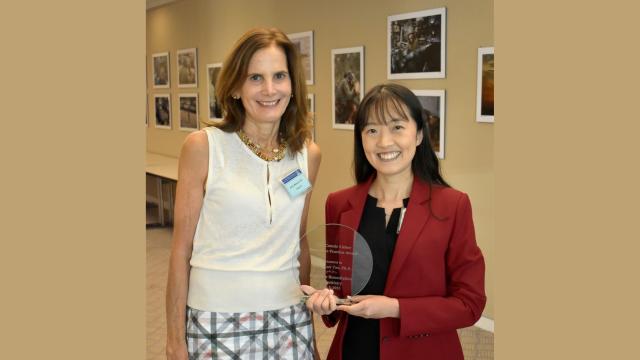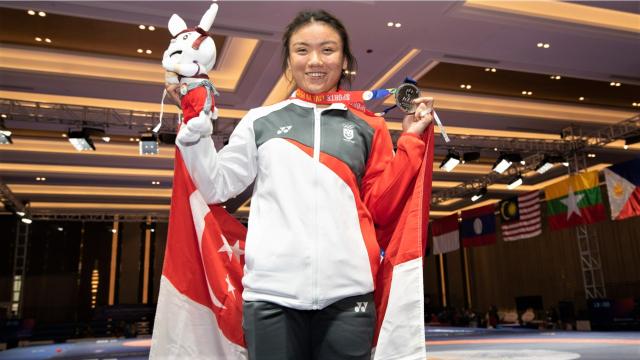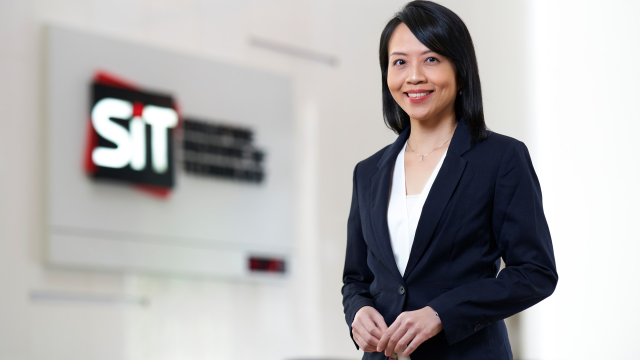Converting eggshells into nutrients – an innovative food waste valorisation that could help reduce waste for a circular economy. Singapore Institute of Technology student Heng Wan Hui, alumnus Tommy Leung Jing Yin, and Singapore Polytechnic student Tan Rui En proposed their novel idea at The Big Foodivate Challenge 2021.
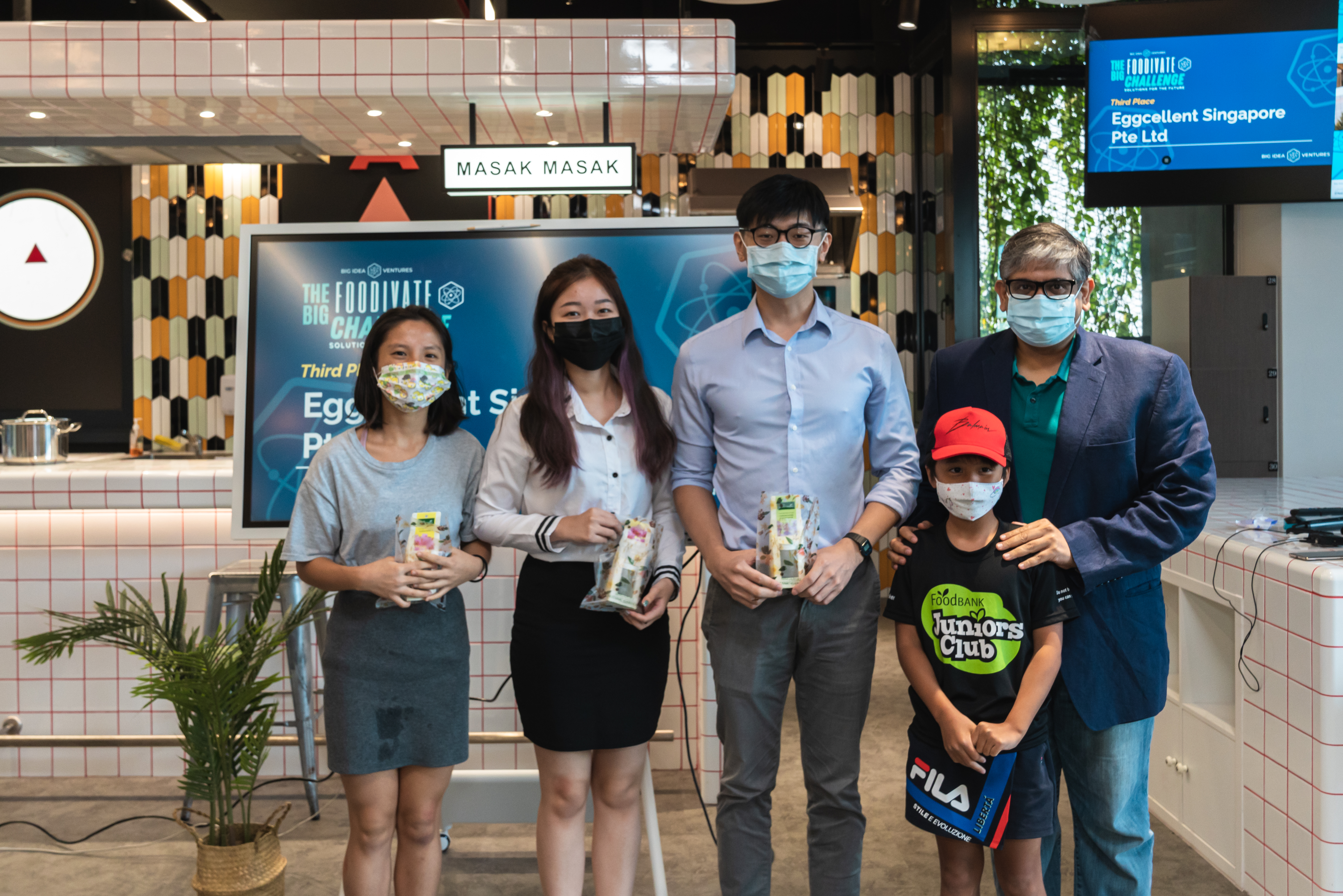
Team Eggcelent at The Big Foodivate Challenge 2021. From left: Tan Rui En, Heng Wan Hui, and Tommy Leung Jing Yin with one of the judges, Mr Deepak Singhal, Executive Director and Group CEO, Consumer Goods, Tolaram Group, and a fellow attendee of the event.
The next time you enjoy a hearty meal of soft-boiled eggs for breakfast, take a closer look at the eggshells before tossing them in the trash.
One might not think much of the hard coverings of eggs at first, but they are a rich source of calcium, and contain other nutrients such as protein and strontium. The potential uses for eggshells include being a key ingredient in supplements as well as being added to coffee, noodles, and cakes to boost their nutritional value.
Putting eggshells to good use would not only reduce waste, but also offer consumers another source of nutrition.
This out-of-the-box idea came to three young Singaporeans as they prepared for The Big Foodivate Challenge 2021.This student pitch competition invited proposals on how to help Singapore produce 30 per cent of its nutritional needs locally by 2030.
Calling themselves Team Eggcelent, Year 3 SIT Food Technology student Heng Wan Hui, 21, and alumnus Tommy Leung Jing Yin, 28, joined forces with Singapore Polytechnic student Tan Rui En, 19.
These aspiring food technologists are far from eggheads who are out of touch with reality. First, they quickly scanned the market for potential competitors.
A quick survey revealed that no similar products were being sold here, further fuelling the team’s aspirations to be the country’s first food tech start-up to pioneer this unique idea.
With Singapore generating 30,000 kg of eggshell waste every day, there was clearly an abundance of raw material that could be easily obtained at a low cost. It was better than the team’s initial idea, which was to extract protein from chicken feathers.
Going the Eggs-tra Mile
“We conducted research on the benefits of eggshells and the processing steps required to turn them into powder. We knew that we could produce this product on an industrial scale given our knowledge of food technology,” said Tommy.
For a start, they would need to obtain clean eggshells. This would require a special arrangement with companies producing eggshell waste. They would have to set aside a special collection point for the eggshells. This was necessary to ensure that the eggshells would not be contaminated by other waste products.
Next, collected eggshells would need to be thoroughly cleaned. The shells would then be sterilised and dried before going through a milling process to reduce them to powder. The eggshell powder and eggshell membrane powder would then be extracted through a pneumatic separation process, which separates powders based on their differing properties and densities.
Eggshell powder has a variety of uses. It can serve as an ideal nutrient replacement for individuals who are lactose intolerant or suffer from nut allergies. Its high calcium carbonate content also makes it suitable for those who have a calcium deficiency. Bakers can easily mix the powder into flour to boost the calcium content of bread, pastries, or cakes.
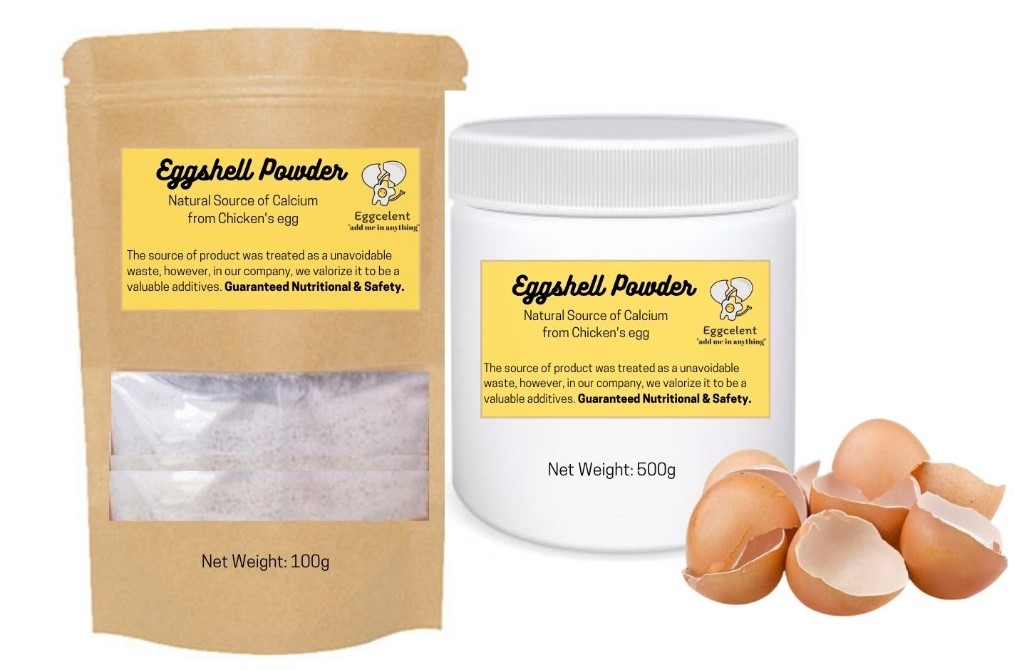
The potential uses for eggshells include being a key ingredient in nutritional supplements, and as an additive to boost the nutritional value of various foods.
Additionally, eggshell membranes contain collagen, which helps improve skin firmness.
“We can save eggshells from being thrown into the bin and choking up our only landfill by processing and turning them into a nutritional and valuable product,” shared Tommy.
Striving for Egg-cellence
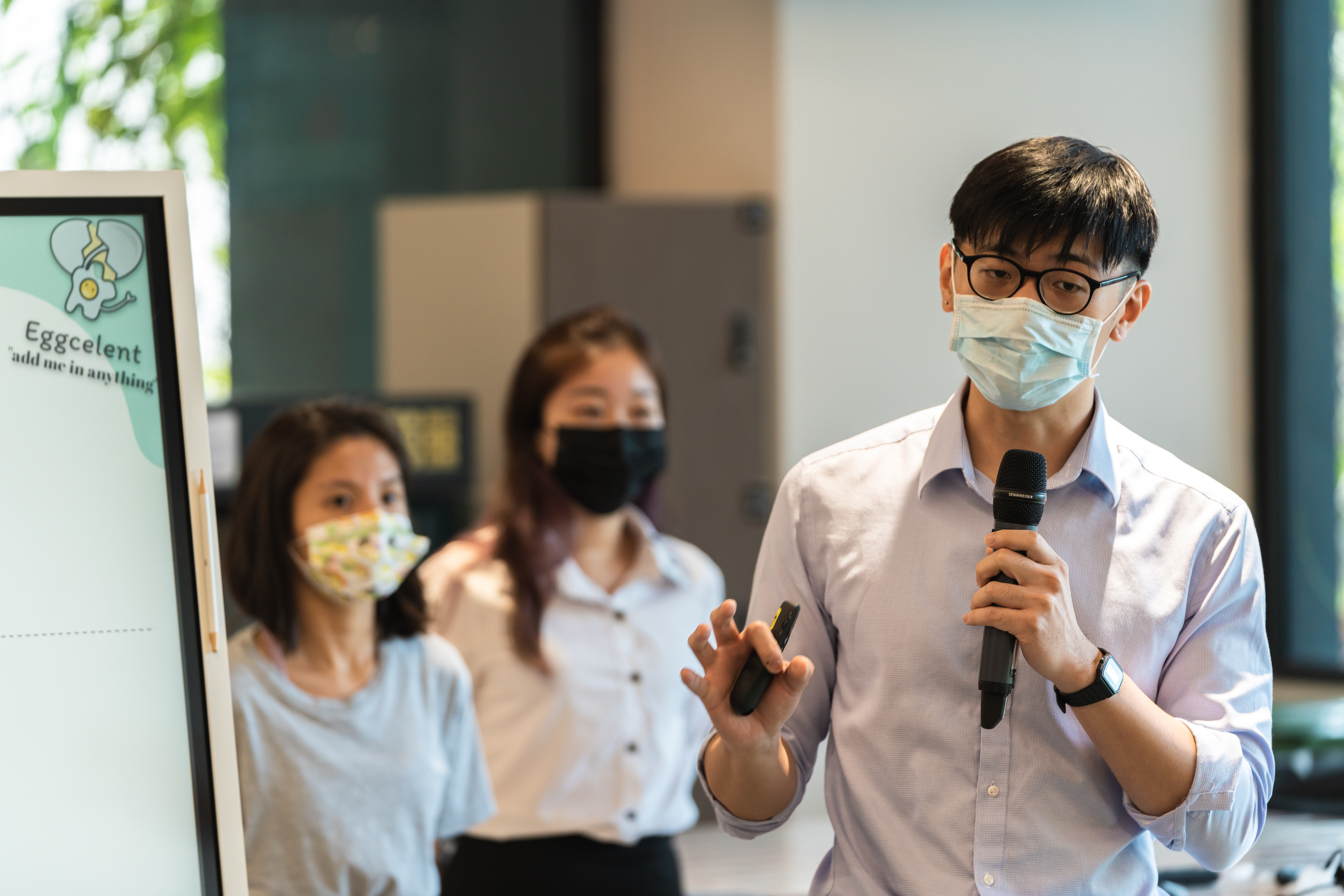
Team Eggcelent presenting at The Big Foodivate Challenge.
The project was challenging for the team. For starters, meeting up for weekly discussions was tough due to hectic schedules filled with work and study commitments. The COVID-19 restrictions added to their difficulties.
“Tommy is working full-time, while Rui En and I are still studying, so we have busy schedules and different commitments. It was quite hard for us to meet up for weekly discussions to brainstorm ideas,” said Wan Hui.
Team Eggcelent got to experience the research and ideation process, creating a five-minute pitch and presenting it to the judges, comprising industry players such as the Straits Clan, Milken Institute, A*STAR, and the Good Food Institute.
The panel loved what they heard and recognised the high market value of eggshells. Team Eggcelent advanced to the final round in the Big Foodivate Challenge and eventually clinched third place in the Food Process and Packaging Solutions category. Participants in this category focused on how food handling and processing could be optimised to be more efficient, sustainable, and safe.
“Amid the challenges, one thing I learnt in the competition was to piece all the different research and ideas we had together and showcase them to the judges,” Tommy said.
What’s the next step for the team? Well, they are looking for like-minded partners in the food industry and sponsors to turn their idea to reality.
“We also hope to work with Institutes of Higher Learning on food research projects to conduct more studies on eggshells, which will help to improve our product,” Tommy added.

